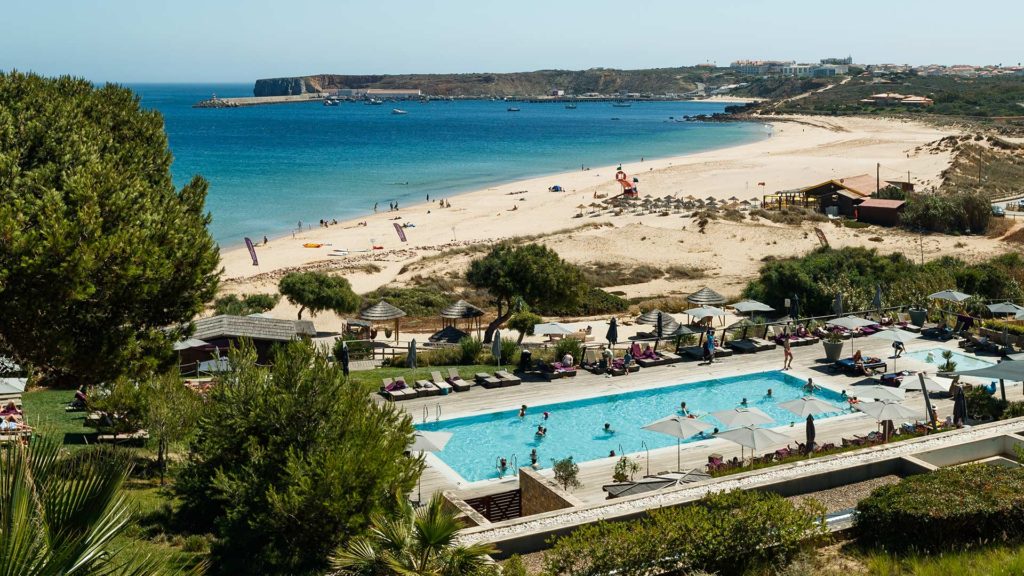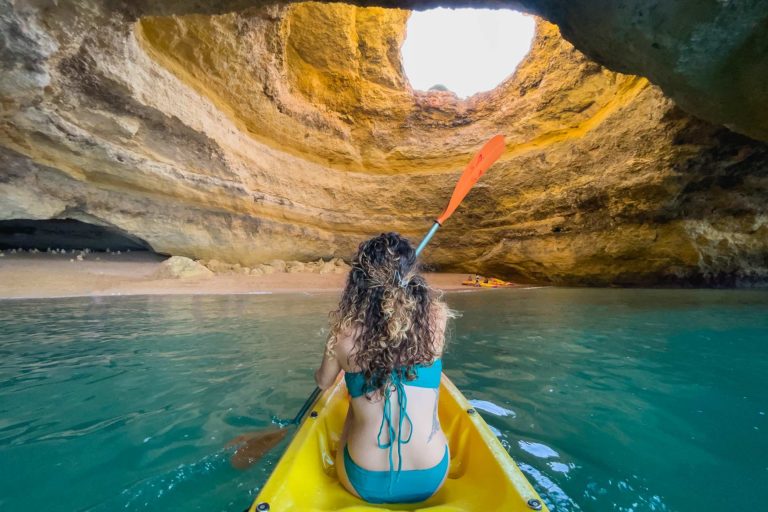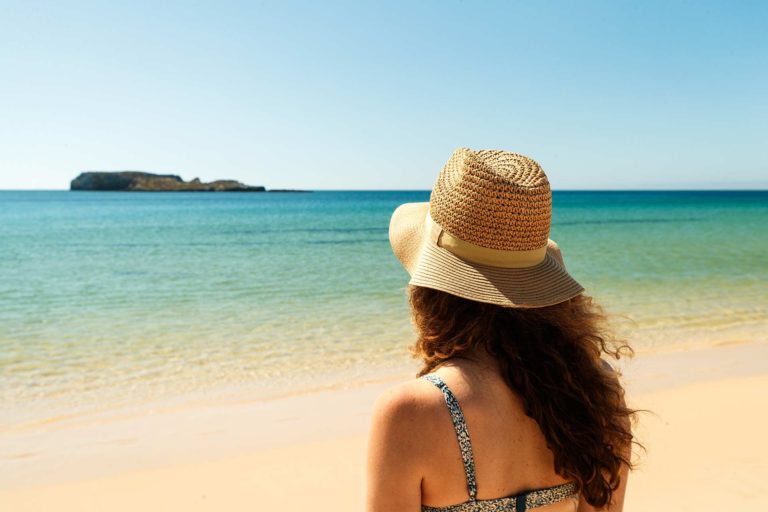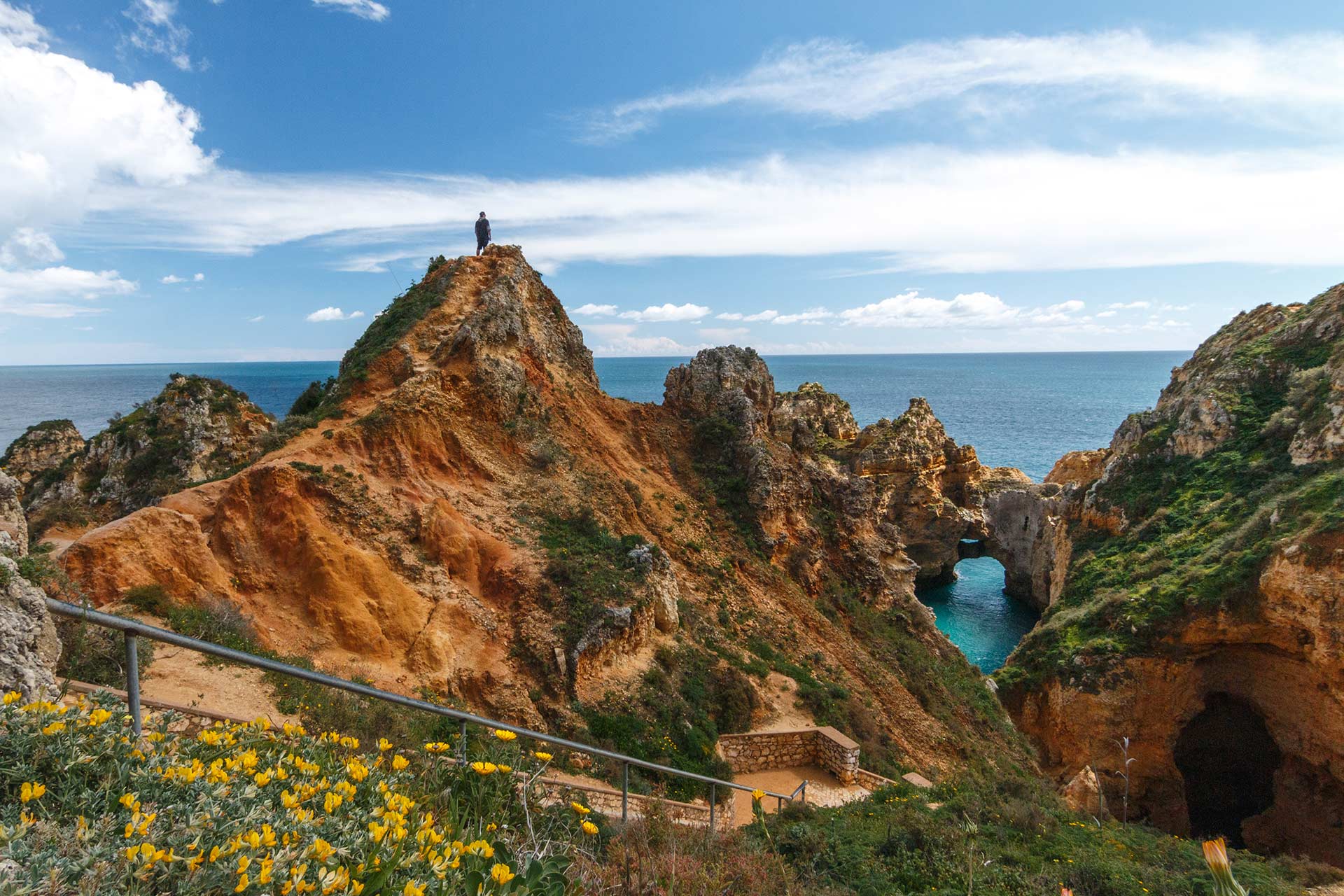
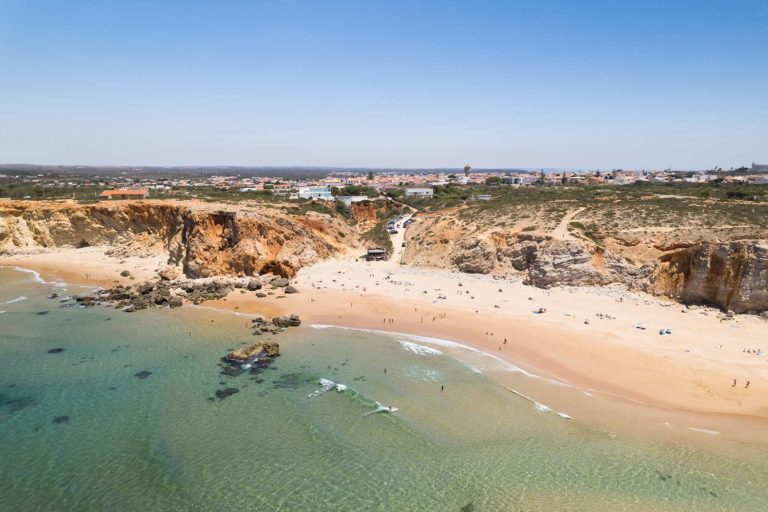
Planning For Portugal’s Algarve October 3, 2022
Famed for its scenic beaches, mouth-watering seafood, and easy-going vibes, the sun-soaked shores of Southern Portugal have been enticing holidaymakers for decades. As a result, the Algarve is well accustomed to travelers, and the tourist industry is just as booming here as it is in better-known areas like Lisbon and Porto.
While it may be tempting to hop on a plane and enjoy a spontaneous weekend away, there are a few things to keep in mind when planning a visit to Portugal’s southernmost region. Here are a few Pre-Travel Planning Tips to help you make your Algarve vacation:Best Months to Visit
Portugal’s southern region sees more days of sunshine than most places in Europe, so there’s truly no bad time to visit. That being said, one of the best Algarve tips we can give you is to avoid the busy high-season (July & August). Although summers boast some of the best beach weather (with highs in the mid-80’s), the crowds during this time can put a damper on peaceful vacation plans. Most beaches are packed to the brim, and you may have difficulty finding accommodation and booking tours, as things sell-out quickly during peak season.
Instead, plan a trip for the shoulder seasons of May or October. Temps are still delightful (mid-70’s), and the crowds are significantly sparser. Even winter trips can be quite enjoyable, with highs in the low 60’s and all-but-empty beaches.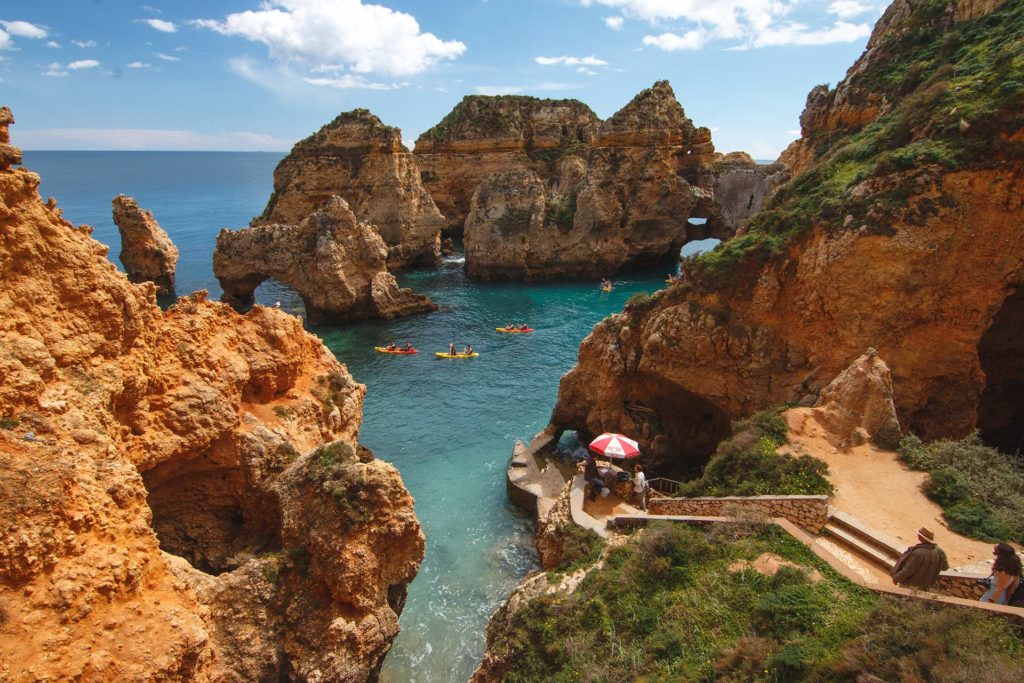
Entry & Exit Requirements
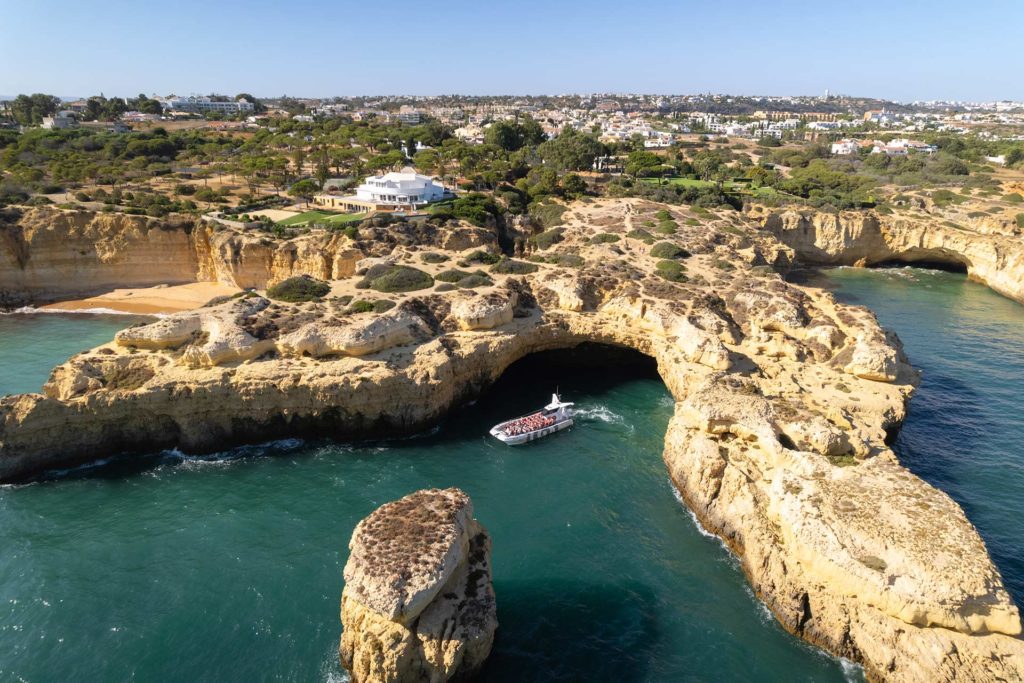
Portugal (and therefore, the Algarve) is part of the European Union and the Schengen Zone. This means that most travelers do not need a specific visa to enter the country – so long as they have proof of departure within 90 days of arrival (note: this will soon be changing in 2023). All you need is a valid passport or a national ID card if you are from the EU.
Portugal has recently lifted all COVID restrictions, so there is no need to worry about showing proof of vaccination or negative tests when entering the country.
Note: If Portugal is not your first port of entry into Europe, you may be responsible for showing a negative test or proof of vaccination, depending on the country.Language, Currency, and Electricity
The official language of Portugal is Portuguese, though most people in the Algarve speak English as well (especially in the more touristy districts). Even so, learning a few common Portuguese phrases will win you the respect of the locals, as it’s common courtesy to greet business owners with “bom dia” (good morning) or “boa tarde” (good afternoon).
The official currency of Portugal is the Euro (€). Unlike many European countries, cash is king in Portugal, so be prepared to pay in cash for certain services.
Portugal uses the round two-prong plug type used in most of Europe. Voltage is 230V and 50Hz.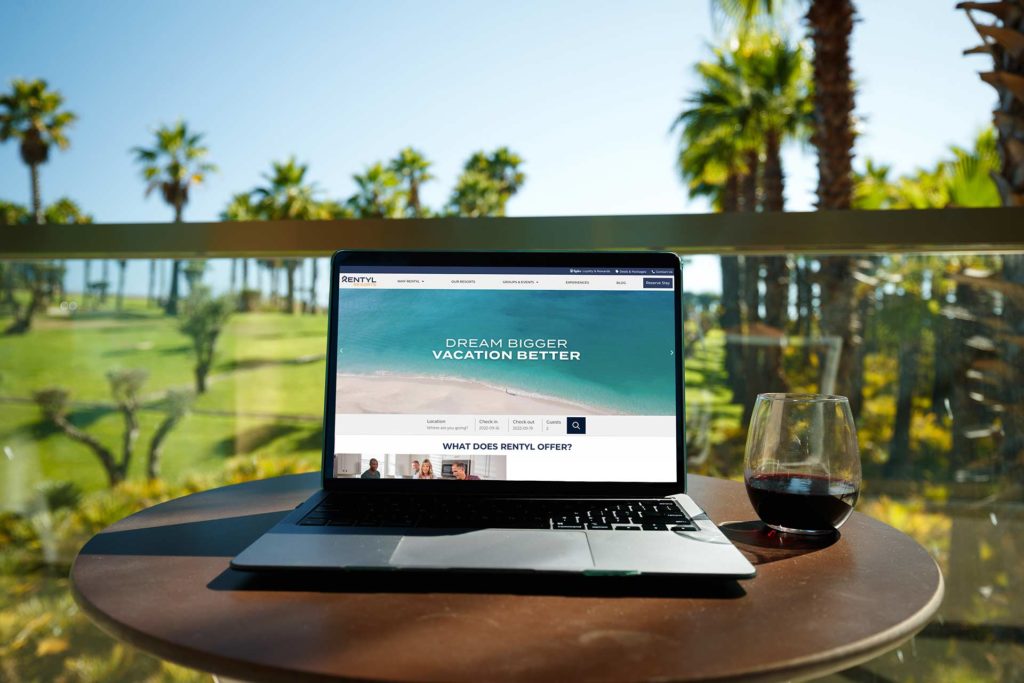
What to Pack
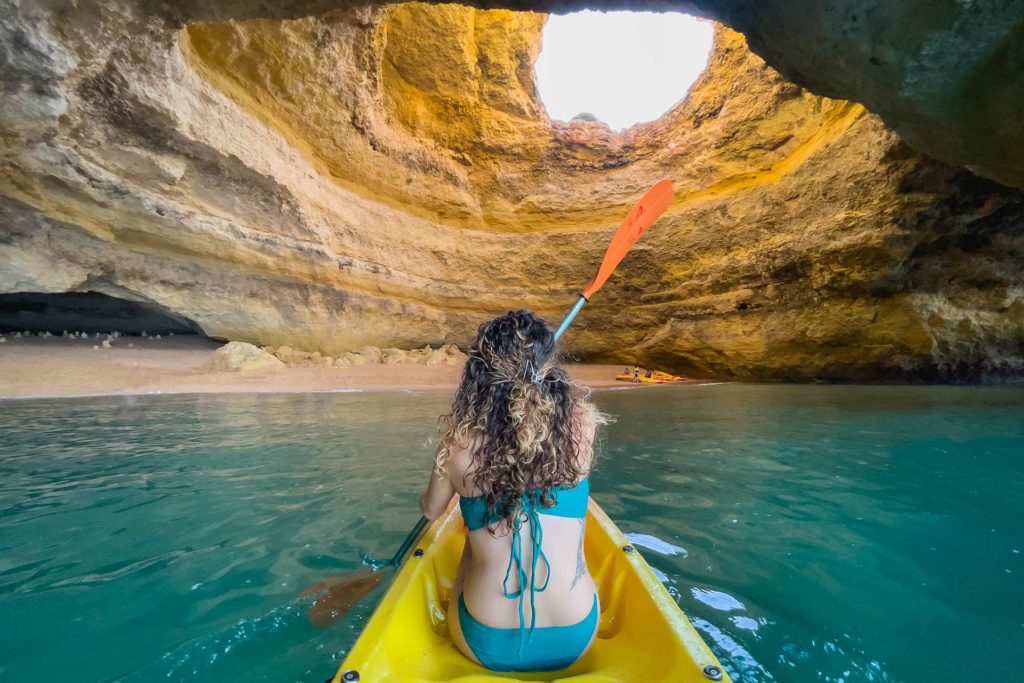
While temperatures are pleasant year-round, weather in the Algarve can be unpredictable – even in the summer! For this reason, it’s a good idea to pack a diverse wardrobe, though a swimsuit is an obvious staple.
Spring and autumn are a bit more challenging to pack for, as you may experience all four seasons in a single day! Bring at least one pair of pants and a heavier jacket or sweater, as evenings can be cool in every season.
If you forget to pack anything, you’ll likely be able to find it in the Algarve, and prices for clothes aren’t terribly expensive.Where to Stay
